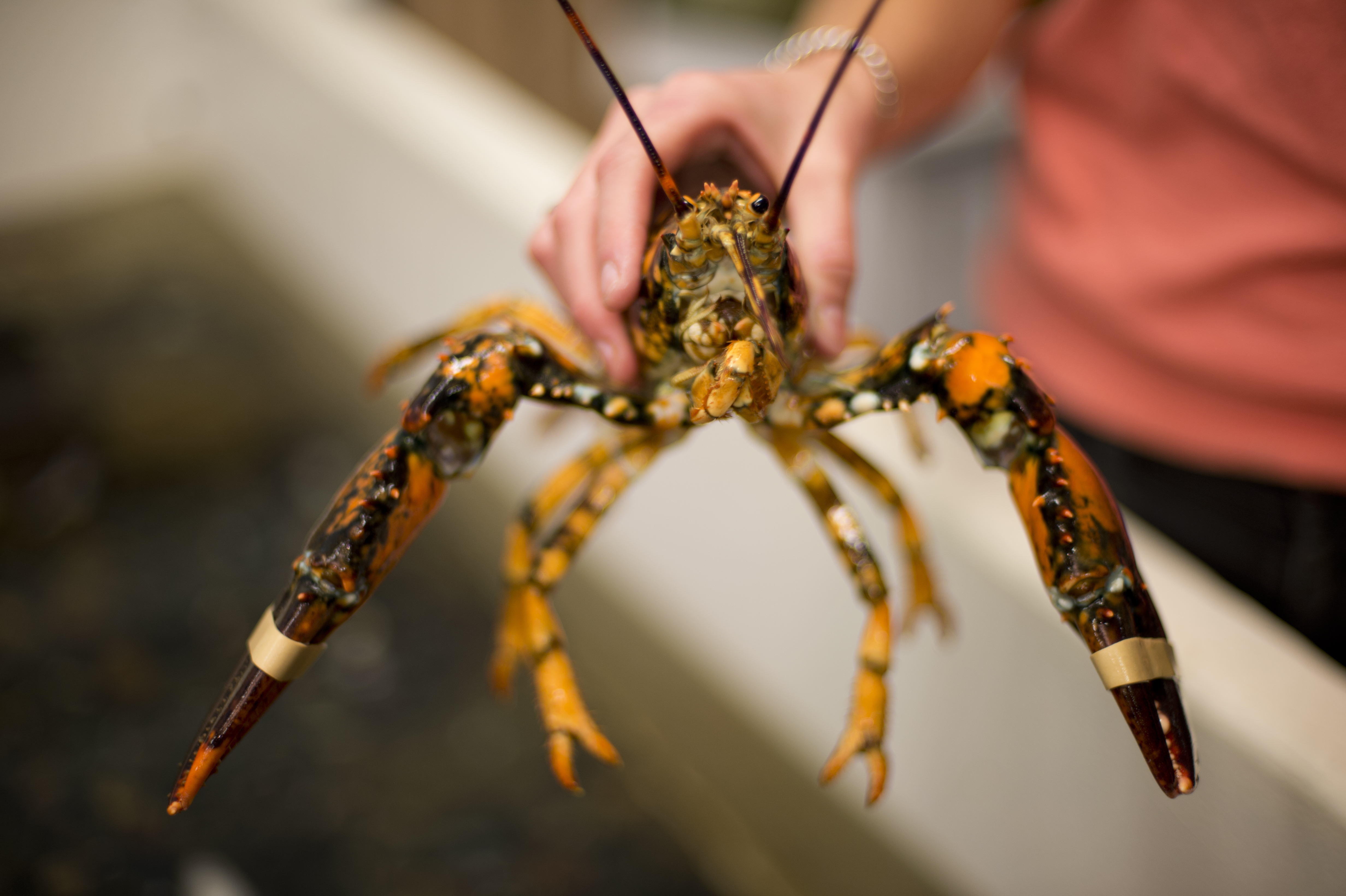If you think you are about to become the victim of an attack, police say one way to potentially protect yourself is to hide.
In the lobster world, the same goes. Lobsters hide from their predators.
That’s what marine and environmental sciences graduate student, Marissa McMahan, along with MES faculty member Jonathan Grabowski found. Their research was recently published in an article in the Canadian Journal of Fisheries and Aquatic Sciences.
What they, along with a team of researchers from Maine, found was that when cod – a known predator of lobster in the Gulf of Maine – were present, lobsters didn’t venture out much, but when the cod were removed, the lobsters would wander more freely.
The research took place in the small town of Friendship, Maine, a quaint town with generations of lobstermen. There’s a lot of institutional knowledge about lobsters, said Grabowski. In addition, McMahan has spent time on lobster boats herself, as her father and grandfather have worked as lobstermen in Maine.
“These men had seen a downturn of cod, and the cod population had all but collapsed, but they were seeing a major expansion in the lobster population,” Grabowski said.
Interested in this three-decade turn of events, the team wanted to test the hypothesis that “cod induce lobsters to decrease movement and seek refuge.”
In their study, the researchers placed four tagged lobsters (it started as five, but one escaped) in an enclosure placed in a rocky habitat that offered refuge for the lobsters. The lobsters used were large enough to avoid being consumed by cod.
After 21 days the team introduced three cod to the enclosure. They all escaped within ten days, but in that time, the team was able to gather some data.
Using acoustic receivers and synchronized tags, they learned that the bottom line is, when the cod were present, the lobsters didn’t stray far from their home base of rocks and covering. Once all of the cod were gone from the area, the lobsters once again started moving more freely.
So what does this mean?
McMahan says it’s important to share this information with the public because it illustrates how the predator-prey interactions, as well as overfishing, can shape marine communities.
“I have presented this research to multiple age groups and often find that people are unaware that cod were once so abundant in the Gulf of Maine, and that they have been subjected to strong fishing pressure for hundreds of years,” she said. “My hope is that this research is intriguing to the general public, and that it will spark their interest in how marine communities area shaped. More importantly, I hope that it will cause people to reflect on how humans impact the marine environment.”
McMahan goes on to say that humans can no longer think about ecosystems without considering the influence we have on them. She says this research shows how intricate we are to the story.
From here Grabowski says they will look at different types of predators, including striped bass and sea rays, and see how the different predatory style – lie in wait versus quick attack – impacts lobsters’ behaviors.
McMahan says she will continue to study predator-prey relations, but is focusing on emergent species in the Gulf of Maine and how they are impacting the local ecology.
by Kara Matuszewski Sassone

